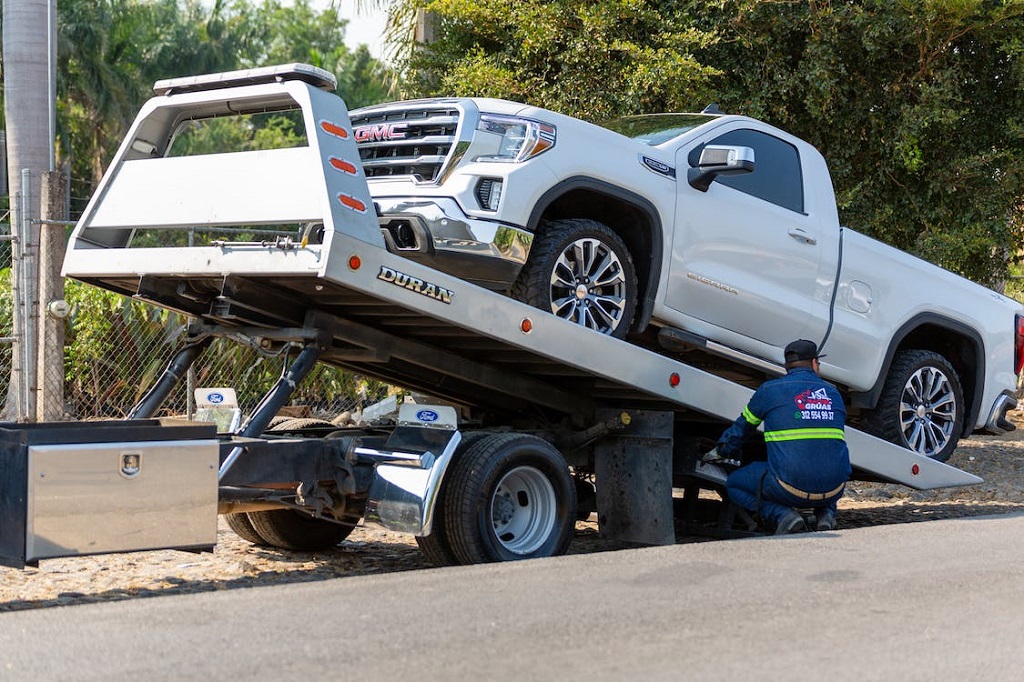Truck accidents can have destructive consequences, often resulting in severe injuries and property damage. In St. Louis, Missouri, these accidents occur frequently due to the city’s bustling transportation industry and busy highways.
The Missouri Department of Transportation report states that the total traffic crash fatality count for 2022 was 1,057. This is an increase over 2021’s total by 41 fatalities. These statistics highlight the concerning trend of increased fatalities on Missouri’s roads.
When seeking compensation for injuries and losses in truck accident lawsuits, it is crucial to understand the burden of proof required to establish liability in Missouri courts. In this article, we delve into the unique aspects of St. Louis truck accident cases and explore the key factors that plaintiffs must consider to build a strong legal case.
St. Louis Traffic Regulations
Navigating St. Louis’ intricate traffic regulations and trucking laws is crucial in establishing liability in truck accident cases. St. Louis follows specific rules regarding commercial trucking, including weight restrictions, hours of service, and mandatory safety inspections.
Plaintiffs need to prove that the truck driver or trucking company violated these regulations, leading to the accident. Understanding St. Louis’ unique traffic and trucking laws is essential for both the injured party and their legal representation to build a persuasive case.
In such cases, hiring a St. Louis truck accident lawyer is your best approach. Local lawyers will not only keep themselves updated with the latest laws and regulations, but they will also be up-to-date with all the different crash cases in the locality. In addition, they will be familiar with the legal landscape and authorities. This can play a big role in the success of your truck accident case.
For example, KSDK recently reported an incident from St. Louis where a trash truck driver plowed into a women’s car, and the city refused to aid her in extracting complete damages. Cases like these give invaluable insights to your local lawyer that they can use in your favor.
Investigating Negligence: Gathering Evidence
According to TorHoerman Law, plaintiffs must gather compelling evidence of negligence to establish liability in accident lawsuits. This includes obtaining accident reports, witness statements, photographs, and any available surveillance footage.
Additionally, engaging the services of accident reconstruction experts can be crucial in determining the cause of the accident and highlighting any negligent behavior by the truck driver or trucking company. Local legal teams well-versed in truck accident cases can efficiently navigate the city’s resources and agencies to gather the necessary evidence to prove negligence.
Proving Employer Liability: Respondeat Superior
Truck accident cases often involve holding not just the truck driver but also the trucking company accountable. In the case of a truck crash in St. Louis, plaintiffs must establish employer liability through the legal doctrine of respondeat superior.
Respondeat superior holds employers responsible for the actions of their employees within the scope of their employment. Proving that the trucking company was negligent in hiring, training, or supervising the driver can strengthen the case and potentially increase the amount of compensation available to the injured party.
Addressing Comparative Negligence
St. Louis adopts the comparative negligence concept, which implies that even if the plaintiff is somewhat to blame for the accident, they may still be entitled to compensation. The amount of compensation given, however, will be proportionate to their degree of fault.
Establishing liability in St. Louis truck accident lawsuits requires plaintiffs to effectively address any allegations of comparative negligence raised by the defense. Skilled attorneys can navigate this aspect of the law and argue for maximum compensation based on the extent of the defendant’s negligence.
Expert Witnesses: Building a Case
Expert witnesses play a crucial role in truck accident cases. These professionals possess specialized knowledge and expertise that can help establish liability.
A recent article featured in the Legal Reader highlights the significant role of expert witnesses in strengthening a claimant’s case. According to the article, the testimony provided by an expert witness can greatly enhance a claimant’s chances of receiving the rightful compensation they deserve.
The article further notes that the absence of an experienced professional to support their argument could put claimants at a disadvantage and potentially jeopardize their chances of achieving a fair outcome. Hence, selecting the right expert witnesses who are familiar with St. Louis truck accident litigation is vital for building a strong case and enhancing the chances of a favorable verdict or settlement.
Acting Within the Timeframe
In St. Louis truck accident cases, it is crucial for plaintiffs to be aware of the statute of limitations, which sets the timeframe within which a lawsuit must be filed. The statute of limitations for injury lawsuits in Missouri is normally five years from the date of the accident.
If you do not file within this deadline, your lawsuit may be dismissed. As a result, it is critical to connect with a St. Louis-based attorney as soon as possible following the injury to guarantee compliance with the statute of limitations and to safeguard your right to claim compensation.
Key Takeaways
St. Louis truck accident lawsuits require a comprehensive approach to establish liability. Understanding and adhering to the city’s traffic regulations and trucking laws are crucial factors. Gathering compelling evidence of negligence, such as accident reports and witness statements, is essential.
Proving employer liability through respondeat superior can hold trucking companies accountable. Addressing comparative negligence allegations is important, and skilled attorneys can argue for maximum compensation based on the extent of the defendant’s negligence.
The involvement of expert witnesses can significantly enhance a claimant’s chances of receiving fair compensation. Finally, acting within the statute of limitations timeframe is essential to protect one’s right to seek compensation.




